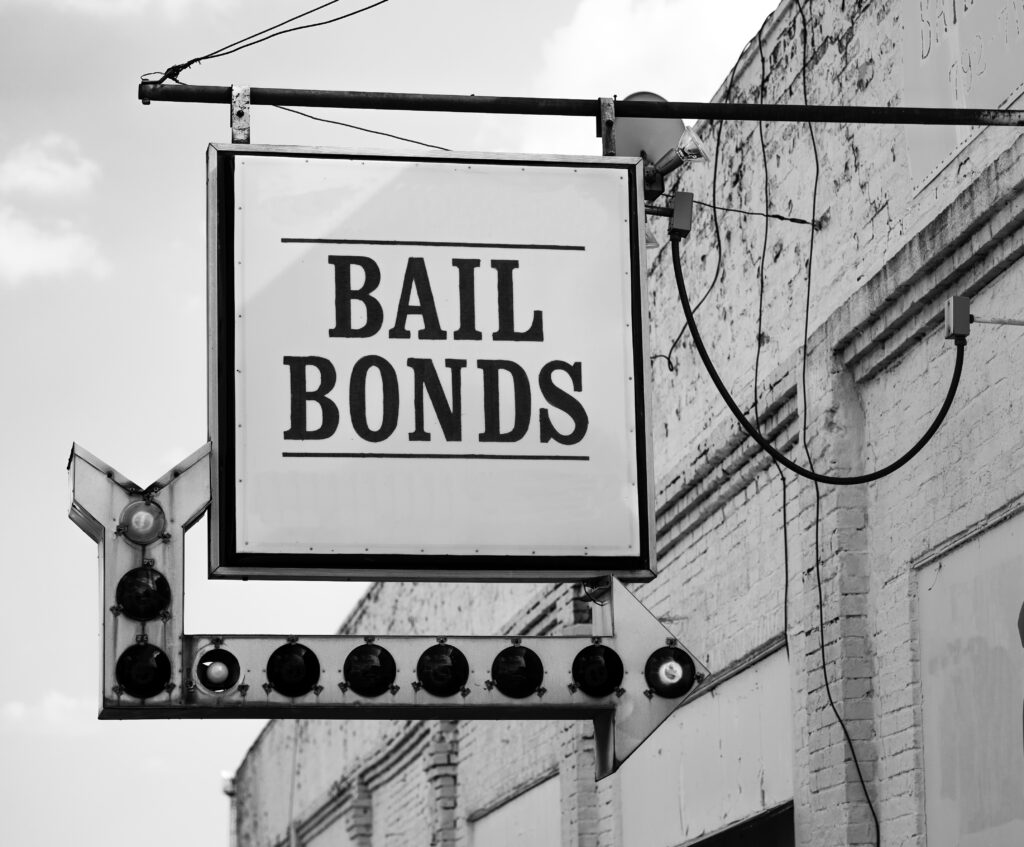They’re both mainstays of TV police shows and crime dramas, and the lines between them can sometimes get a little blurred in the public’s mind: bail bondsmen and bounty hunters. More properly referred to as “licensed bonding agents” and “bail recovery agents,” respectively, these two individuals work together to ensure that defendants appear for their assigned court dates.
While the roles that licensed bonding agents and bail recovery agents play in the world of criminal justice overlap to a certain extent, they’re actually two very different jobs with different skill sets.
In this article, we’re looking at some of the differences between a bail bondsman and a bounty hunter and explain how these two roles work together to ensure that defendants don’t use a legitimate pretrial release as the first step in evading justice.
Bail Bondsman vs. Bounty Hunter
While it’s a little more complicated than this, the job of a bail bondsman is to get you out of jail, and the job of a bounty hunter is to put you back in if you don’t make your court appearances.
Bail Bondsman

A licensed bonding agent, commonly known as a bail bondsman, is an individual who has been licensed by the state and authorized by the jail to write surety bonds for criminal defendants. What that means is that a bonding agent is allowed to accept a bonding fee from a defendant or another interested party, sign a surety bond guaranteeing the defendant’s appearance for their court date, and present that bond to the jail in lieu of bail. The defendant is thereby released from custody after paying only a fraction of their total bail amount to the bonding agent.
The bonding agent is then responsible for ensuring that the defendant makes their court dates. If the defendant fails to appear, the bonding agent (and, by extension, the defendant’s cosigner) is on the hook for the entire bail amount. Rather than pay that expense, many bonding agents will then turn to a bail recovery agent, or bounty hunter.
Bounty Hunter
A bounty hunter’s role is to locate a defendant who has jumped bail and bring them back to custody to answer the charges against them. In exchange for their services, bail recovery agents will typically receive a percentage of the total bail amount for a successful recovery.
The idea of bounty hunting as a legal activity is almost unique to the United States. In the US, someone who issues a bond for a defendant’s release is given wide latitude in their powers to ensure that the defendant makes their court appearances. Bail recovery agents, as private citizens, have more freedom than the police do in apprehending a subject but are not authorized to use force at the same level.
While licensed bonding agents everywhere and bounty hunters in a few jurisdictions are required to carry a license to operate, bail recovery agents in Georgia and many other states are generally unlicensed and are not required to undergo any professional training.
What Can a Bail Bondsman or Bounty Hunter Do?
While both parties have a vested interest in making sure a defendant makes their court appearances, they are required to use very different approaches to doing so.
A bail bondsman can use mainly fiscal means to encourage defendants to cooperate with the conditions of their pretrial release:
- Forfeiture of the bond, requiring the defendant’s cosigner (indemnitor) to pay the full bail amount
- Forfeiture of collateral, if the defendant was required to provide property as security in order to get the bond
The other step a bonding agent might take is to contract with a bail recovery agent to find and recover a defendant who’s jumped bail.
A bail recovery agent can take a more direct route to getting a defendant back to the courtroom:
- They will perform online and other research to determine possible locations
- They can enter a defendant’s home, business, or other potential location without a warrant
- They are authorized to arrest, detain, and transport a defendant in order to return them to the jurisdiction
- If the defendant resists, a bounty hunter can use proportional force to protect themselves and bring the defendant into detention
What Can’t a Bail Bondsman or Bounty Hunter Do?
While bonding agents and bail recovery agents have a good bit of flexibility in how they do their jobs, both are also bound by a number of legal and professional limitations on what they’re allowed to do in the course of their work.
- Bonding agents cannot charge more than a set percentage of the total bail amount as a bonding fee.
- Bail recovery agents cannot force anyone to answer their questions or cooperate with their efforts to find a defendant.
- Bail recovery agents cannot use excessive force to detain a suspect; they may only use force to protect themselves or others in the course of making an arrest.
- In many jurisdictions, bail recovery agents are not allowed to harass or intimidate defendants – they may only interact with defendants as needed to return them to the appropriate jurisdiction.
Arrested in Macon-Bibb County? Don’t Wait in Jail; Call All State Bonding: 478-745-1966
All State Bonding is located in downtown Macon, directly across the street from the Bibb County Jail. We’re available 24/7, and all our bonding decisions are made on-site, so you never have to wait for an answer.